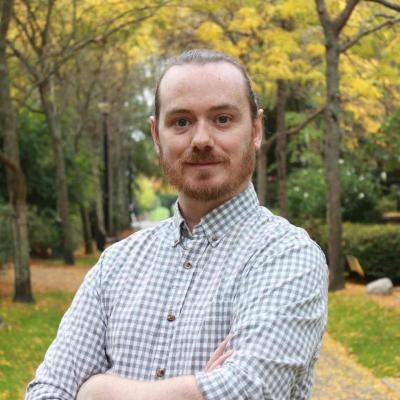2020 Killam Postdoctoral Research Fellowship recipient Steve Renette is exploring the contributions of ancient mountain communities to the emergence of complex social-political organization.

Research topic
Research Description
Combining archaeological, textual, and visual datasets, my research explores the contributions of ancient mountain communities to the emergence of complex social-political organization. Often assumed to be peripheral to centers of innovation, these communities performed a crucial role in maintaining interregional economic systems and supplying necessary raw materials that are fundamental to the prosperity of urban civilizations. Yet despite direct evidence for an enduring symbiotic economic relationship, centralized states consistently described their highland neighbors in antagonistic and inferior terms. My book project reconstructs the origins of this relationship with a particular focus on how mountain communities organized resistance to economic imperialism and military incursions by centralized states to maintain their own identity. This study also reveals how ancient propaganda about mountain peoples shaped Western narratives of the past at a time when 19th and 20th century colonial powers struggled themselves with indigenous opposition to their capitalist exploitation. In addition, my fieldwork project in Iraqi Kurdistan aims to reconstruct the socio-ecological system in the Zagros Mountains during the fifth to second millennia BCE. An improved understanding of ancient, indigenous agropastoral practices, resource management, and social organization to maintain cooperation between dispersed communities can provide valuable contributions to policy debates between 21st century stakeholders about sustainable practices of resource exploitation. This is becoming increasingly urgent as the mountainous zones of southwest Asia are the main sources of fresh water, fertile land, and mineral resources that are contested between today's nations in the region.
Why did you decide to pursue a postdoctoral fellowship at UBC? Did you consider other opportunities?
As a high-ranking academic institution, UBC offers the resources needed for my research, while my supervisor, Lisa Cooper, has conducted similar research in the same region where my project is located. In addition, archaeology of indigenous societies in the mountainous landscape of British Columbia, and their resistance to capitalist exploitation, offers me the opportunity to learn about comparative historical cases, as well as archaeological methodology in a challenging environmental setting. The cosmopolitan city of Vancouver itself provides a stimulating environment to get lots of writing done.
What advice do you have for new postdoctoral fellows?
Reach out to your colleagues, both in and out of your department. These kinds of connections not only provide a social network in our new home, but they can open your mind to new ideas and research collaborations that will define your academic future.
What is the most enjoyable aspect of your postdoctoral fellowship?
Having the financial resources and time to develop my research in new directions.
What are the biggest challenges you have faced, or anticipate facing, in your career?
The past two decades have hit academia hard, especially in the humanities and social sciences. The 2020 pandemic has already accelerated an ongoing process of reduction in sources of funding and job opportunities. All of us share the struggle of writing numerous applications and facing countless rejections, which makes it so important that we maintain close social relationships and collaborations.
What does receiving this award mean for your career?
Receiving a Killam Postdoctoral Research Fellowship first and foremost meant I could continue my research and focus on my book project. This will allow me to be better positioned in the current academic job market, both within Canada and the rest of the world. Meeting my postdoctoral colleagues at UBC, I am honoured to be given the opportunity to learn from such talented individuals.